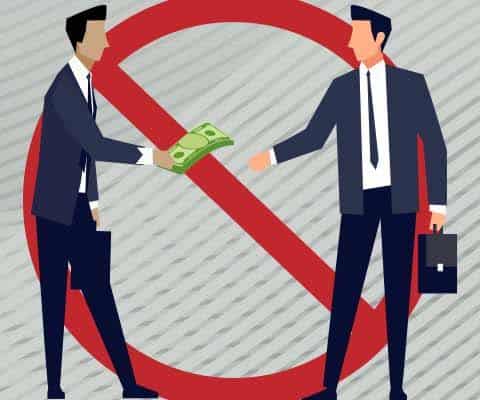The foreign exchange (FX) market is filled with currencies. Many of them are freely traded and their values change based on supply, demand and other market factors. But there are some exceptions.
Restricted and exotic currencies aren’t as accessible as major currencies, like the US dollar, euro or Great British pound. They are either thinly traded on the FX market or not traded at all.
In this article we’re explaining what restricted and exotic currencies are, why they are limited and how to trade them.
Restricted currencies
Governments control their currencies in different ways. Some like to apply restrictions that affect how their currency is traded. In extreme cases, governments may ban their money from being traded entirely. This is known as blocking a currency.
Blocked currencies can’t be converted into another currency. They are non-convertible currencies that often belong to nations with unstable economies.
In the past we’ve seen the North Korean won, the Angolan kwanza, and the Chilean peso blocked by their respective governments.
Aside from blocking currencies, nations may ban citizens from exporting their money or make domestic use of foreign currency illegal. Some countries also prohibit citizens from holding assets in other currencies.
Sometimes currencies become restricted due to sanctions following geopolitical tensions. In 2022, the Russian rouble (RUB) faced significant restrictions after Russia moved its forces into Ukraine. Western countries imposed economic sanctions, cutting Russia off from the SWIFT banking system, freezing assets, and limiting access to foreign reserves.
On the other side of restrictions, governments may peg their currency against another. This permits trading but limits fluctuations in currency value. Pegging essentially means fixing the value of one currency against a foreign currency.
The last time we saw a major currency peg to another was the Swiss franc’s 1.20 peg against the euro in 2011. This meant one Swiss franc was equal 1.20 euros, regardless of market movement.
Read more about this example in: What is forward guidance in FX?
Government control fixes exchange rates giving them an artificial value. It’s unlikely the currency’s value would be the same if it were traded on the free market.
Read more about pegged currencies and other examples here: What is a pegged exchange rate and why do countries do it?
Why do countries restrict currencies?
There are many reasons why a country may restrict its currency. Mainly, it’s to shield their economy from changes in currency value.
Currency fluctuations directly affect the value of a nation’s imports and exports. Large or sudden movements can create trade imbalances and damage economic growth.
By setting their own currency values, governments have more control over their trade balances. On the other hand, preventing people from freely trading foreign currencies may lead to inflation.
Countries may also implement currency restrictions to prevent devaluation, avoid capital flight and limit access to foreigners.
Read: What are tariffs and restrictions in global trade?
Exotic currencies
Exotic currencies are limited in how they can be traded in FX markets. They are illiquid assets that lack market depth and are vulnerable to intense volatility.
Typically, they are traded in small volumes and are associated with emerging market or developing countries. These nations tend to have fragile economies which contributes to currency volatility.
Unlike major currencies, exotic currency values can fluctuate severely following changes in political landscape. In contrast, major currency values, while affected by the political landscape, are also determined by other factors like economic health and interest rate differentials.
Read more about how interest rates affect currencies: How does inflation affect exchange rates?
Due to their lack of liquidity, exotic currencies are usually expensive to trade. This is because their illiquid nature pushes up the bid-ask spread.
The bid-ask spread refers to the difference between the highest price a buyer is willing to pay for an asset compared to the lowest amount a seller is willing to sell it for.
Restricted currencies map
The list of restricted currencies is never set. Currencies come and go from time to time. The map below shows all the current restricted currencies of the world.
How to trade restricted and exotic currencies
Trading restricted currencies is challenging. As well as costing more money, it takes more time too.
Businesses looking to trade in restricted or exotic currencies may find their usual foreign exchange provider lacks the capability to exchange their currency of choice. With some providers, it can take months to make a transfer.
At Privalgo, our sophisticated network of counterparties and payment routes significantly cuts down the time and costs of purchasing restricted currencies.
By selecting the appropriate payment channels, we streamline the process. This not only saves you time but reduces transaction fees too.
While we can’t help with all restricted currencies, our network of banking and payment providers means we can support businesses in accessing a range of currencies through our risk-based approach.
Request a callback to learn more about how our exotic currency capabilities can help your business expand into new jurisdictions and grow globally.
View our full currency list.
Current list of restricted currencies (updated 2025)
Below is the current list of restricted currencies across the world. The trading of these currencies is subject to availability.
Afghanistan | Afghan afghani | AFN
Angola | Angolan kwanza | AOA
Argentina | Argentine peso | ARS
Armenia | Armenian dram | AMD
Bahamas | Bahamian dollar | BSD
Barbados | Barbadian dollar | BBD
Belarus | Belarussian ruble | BYN
Belize | Belize dollar | BZD
Brazil | Brazilian real | BRL
Cameroon | Central African franc | XAF
Chile | Chilean peso | CLP
China | Chinese yuan (Renminbi) | CNY
Cuba | Cuban peso | CUP
Egypt | Egyptian pound | EGP
Ethiopia | Ethiopian birr | ETB
Fiji | Fijian dollar | FJD
Georgia | Georgian lari | GEL
Ghana | Ghanaian cedi | GHS
India | Indian rupee | INR
Indonesia | Indonesian rupiah | IDR
Iran | Iranian rial | IRR
Kazakhstan | Kazakhstani tenge | KZT
Kyrgyzstan | Kyrgyzstani som | KGS
Libya | Libyan dinar | LYD
Malaysia | Malaysian ringgit | MYR
Mauritius | Mauritian rupee | MUR
Moldova | Moldovan leu | MDL
Morocco | Moroccan dirham | MAD
Myanmar | Burmese kyat | MMK
Namibia | Namibian dollar | NAD
Nepal | Nepalese rupee | NPR
Nigeria | Nigerian naira | NGN
North Korea | North Korean won | KPW
Pakistan | Pakistani rupee | PKR
Papua New Guinea | Papua New Guinean kina | PGK
Philippines | Philippine peso | PHP
Russia | Russian ruble | RUB
Samoa | Samoan tala | WST
South Sudan | South Sudanese pound | SSP
Sri Lanka | Sri Lankan rupee | LKR
Sudan | Sudanese pound | SDG
Tajikistan | Tajikistani somoni | TJS
Tunisia | Tunisian dinar | TND
Turkmenistan | Turkmenistani manat | TMT
Ukraine | Ukrainian hryvnia | UAH
Uzbekistan | Uzbekistani som | UZS
Venezuela | Venezuelan bolívar | VES
Vietnam | Vietnamese dong | VND
10 FAQs about restricted and exotic currencies
Below are 10 frequently asked questions about restricted and exotic currencies. Some questions are answered using content already used in this article.
What is a restricted currency?
A restricted currency is one that a government controls by limiting its exchange or international transfer. These currencies may have strict regulations on how they are traded or converted, and some are entirely blocked from foreign exchange.
Why do countries restrict their currencies?
Countries restrict their currencies to control inflation, prevent economic instability, reduce capital flight, and regulate international trade. Some nations also use restrictions to protect their economies from external financial shocks.
What is the difference between a restricted currency and an exotic currency?
Restricted currencies are actively controlled by governments, often limiting their trade or convertibility. Exotic currencies, on the other hand, are not necessarily restricted but are thinly traded, highly volatile, and often associated with emerging markets.
Can businesses trade restricted currencies?
Yes, but it depends on the restrictions in place. Some restricted currencies require special licenses or regulatory approvals, while others can only be traded through government-approved channels. Privalgo can help businesses access some restricted currencies through a risk-based approach.
What happens when a currency is blocked?
A blocked currency cannot be converted into another currency or traded internationally. This usually occurs in countries experiencing severe economic instability or geopolitical conflicts, such as North Korea and Venezuela.
How do geopolitical events impact restricted currencies?
Geopolitical tensions and economic sanctions can lead to currency restrictions. For example, the Russian rouble (RUB) faced major restrictions after Western sanctions were imposed in 2022 following the conflict in Ukraine.
What is a currency peg, and how does it relate to restrictions?
A currency peg is when a government fixes its currency’s value to another, such as the US dollar or euro. This limits natural fluctuations but can create artificial valuations. For example, the Swiss franc was pegged to the euro at 1.20 in 2011 to stabilise its value.
Why are exotic currencies more expensive to trade?
Exotic currencies have low liquidity, meaning they are not frequently traded in the FX market. This results in wider bid-ask spreads, making transactions more expensive compared to major currencies like the US dollar, pound or euro.
How can businesses trade exotic currencies efficiently?
Businesses can work with specialist currency providers like Privalgo, which have established networks and efficient payment routes to reduce costs and transaction times when trading certain exotic or restricted currencies.
Where can I find a list of restricted currencies?
An updated list of restricted currencies can be found in this article under the heading ‘Current list of restricted currencies (updated 2025)’, helping businesses stay informed about changes and new restrictions.
*This post is for information purposes only and should not be considered financial advice.


